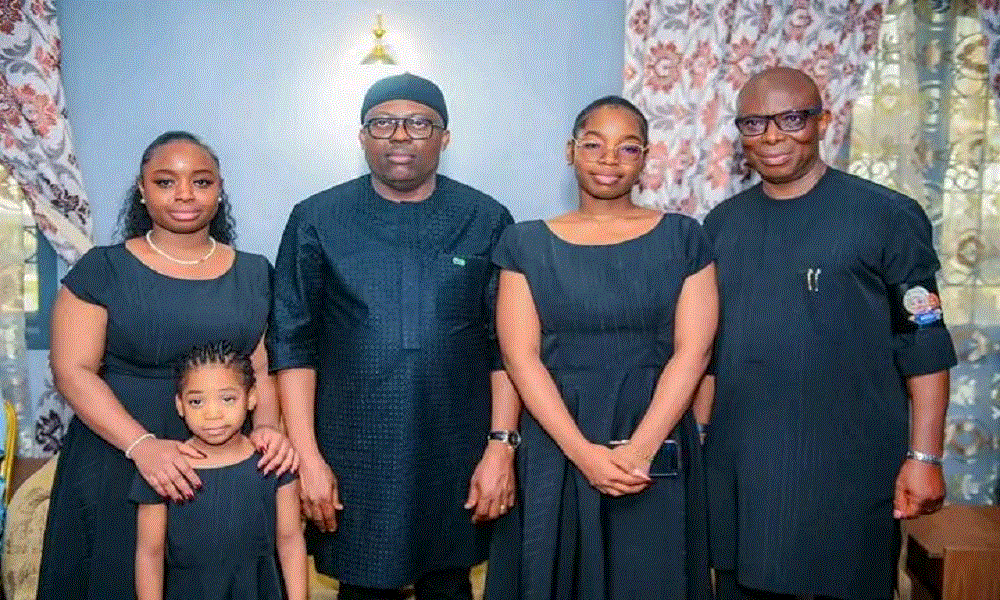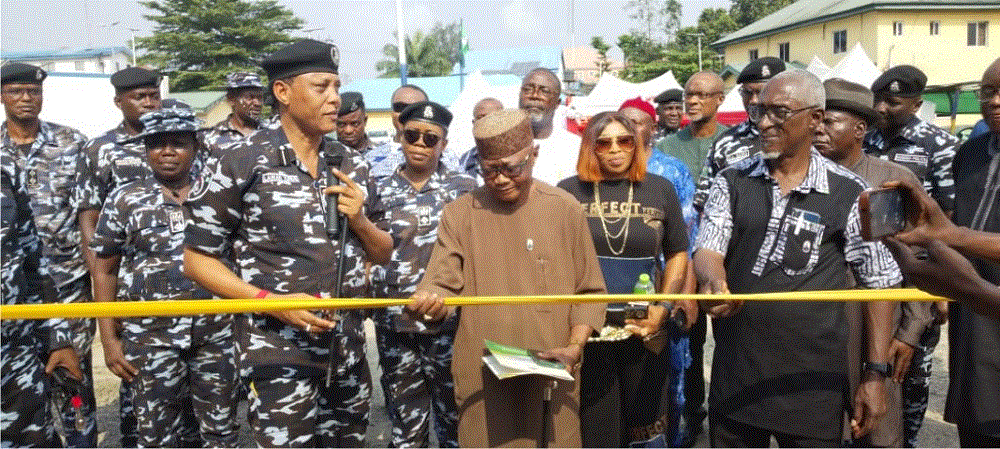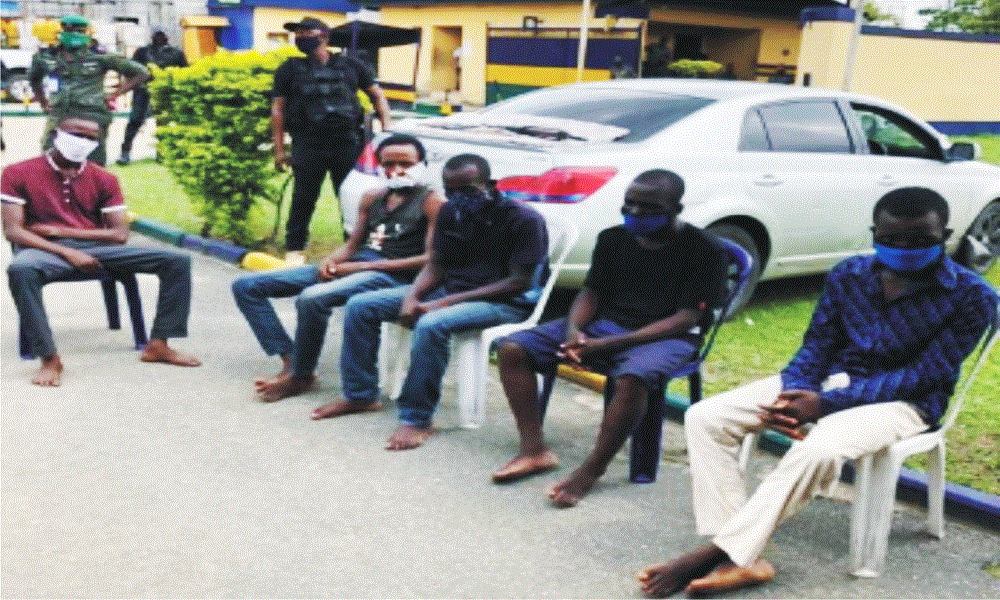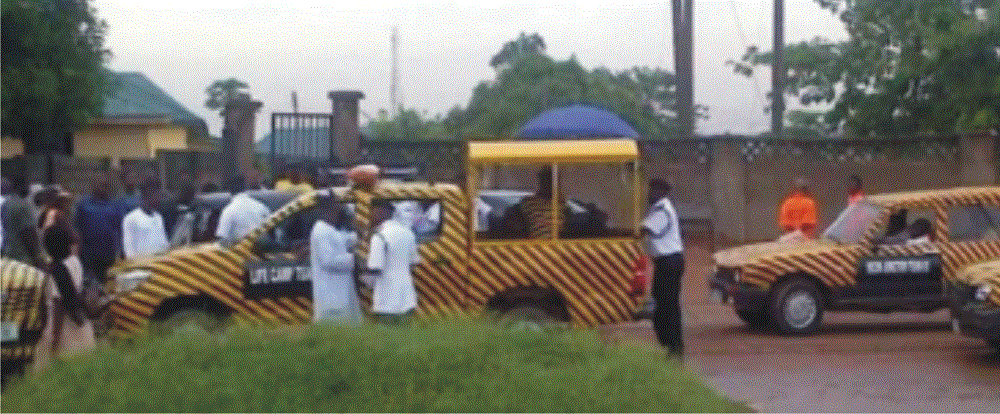Drama As Senate Lists Jailed Dariye As Co-Sponsor Of Motion On Kaduna Killings
The Senate on Thursday listed Senator Joshua Dariye (Plateau Central), who is currently serving 10-year jail term, as a co-sponsor of a motion on insecurity in Kaduna State and the attendant killings.
Dariye’s name was number 89 on the Order Paper, alongside those of 107 senators who had supported the motion.
At the plenary on Thursday, the upper chamber of the National Assembly considered and adopted the motion entitled, ‘Senseless Killing of a Briton and the Abduction of Three Others in a Holiday Resort in Kaduna State by Armed Bandits.’
The lawmaker representing Kaduna Central Senatorial District, Senator Shehu Sani, sponsored the motion, together with 107 other lawmakers, including Senator Joshua Dariye, who is currently in jail.
The Economic and Financial Crimes Commission had prosecuted Dariye for fraud he committed while he was governor of Plateau State.
Unanimously adopting the motion, the lawmakers resolved to observe a minute’s silence in honour of the departed souls, while urging the security authorities to intensify the search for the perpetrators and bring them to book.
The Senate also urge the Federal Government to set up an inter-agency task force to tackle cases of banditry and kidnapping in Kaduna, Katsina, Zamfara and Niger states, while urging security agencies to give special security cover to foreign workers and tourists.
The lawmakers also urged security agencies to “immediately deploy the use of drones and interceptors in tracking kidnappers asking for ransom,” while advising community and traditional rulers and all stakeholders to cooperate with security agencies.
Other resolutions were to “urge telecommunication companies to provide security agencies with information in areas where there are kidnappings; and urge Senate to send a delegation to the British embassy and condole the British Government.”
Deputy President of the Senate, Ike Ekweremadu, made an additional prayer to invite Acting Inspector-General of Police, Mr. Adamu Mohammed, to appear before it “next week” and explain the spate of insecurity across Nigeria.
The prayer was unanimously granted.
Moving the motion, Sani condemned the attack on a holiday resort in Kajuru Local Government Area of Kaduna State, the killing of a 29-year-old Briton, Faye Mooney and another Nigerian, Mr. Mathew Oguche, and the abduction of three others on April 19, 2019.
He said, “The Senate notes with sympathy and total dismay, the wave and spate of armed banditry and kidnappings in most parts of the country, from the North, South, East and Western parts of the country without a formidable and technological approach to fighting the heinous crime.
“In recent times, the attacks on individuals, houses and villages have become one too many, and there is no single person that has been brought to book as a result of the wanton killings; and the so-much-emphasised efforts at combating the crime is not yielding fruitful results.
“The Senate is more worried due to the fact that perpetrators of these heinous activities tend to be gaining more courage to perpetuate their dastardly acts without fear of confrontation due to their acclaimed superior fire power.”
Sani recalled that President Muhammadu Buhari, earlier in the year, had ordered senior security chiefs to curb kidnappings in the region when four western tourists – two Americans and two Canadians – were abducted in Kaduna in an ambush in January, that left two of their police escorts dead.
The lawmaker warned that the recurrence of “this banditry where foreigners and tourists are involved may put Nigeria’s diplomatic relationship on the line, thereby raising red flag to other tourists who may wish to visit Nigeria.”
Sani said in parts, “The northern part of Nigeria has become a theatre of killings and kidnappings, especially in states like Zamfara, Katsina, Sokoto, Kaduna and Niger. Kajuru in Kaduna State is notorious for killings and kidnappings.
“Worthy of concern also is the spate of killings and kidnappings that have found base in Zamfara and Niger states. In Munya Local Government Area of Niger State, over 20 housewives were kidnapped; and areas such as Kushaka, Kurebe, Pandogari, Gidigori, Kusherki, Koregi, and Alawa, Kwaki, Bataro, Chikuba, Shafa, Kauri, Zazzaga in Rafi Local Government Area are under serious siege by the kidnappers.
“Other areas under siege include Kakangi, Gayam, Dan Canji, Maganda, Dawari and Kazage. Distinguished colleagues, you will be astonished to hear that the kidnappers had the audacity to write and warn the member representing Birnin Gwari/Giwa in the House of Representatives, Hon. Hassan Adamu Shekara, warning him of his activities, thereby forcing him to evacuate his family from the area.
“Distinguished colleagues, as I present this motion, negotiation is ongoing to pay ransom for the abductees of the Kujuru incident. The abductors had earlier demanded for N60m as ransom.”




